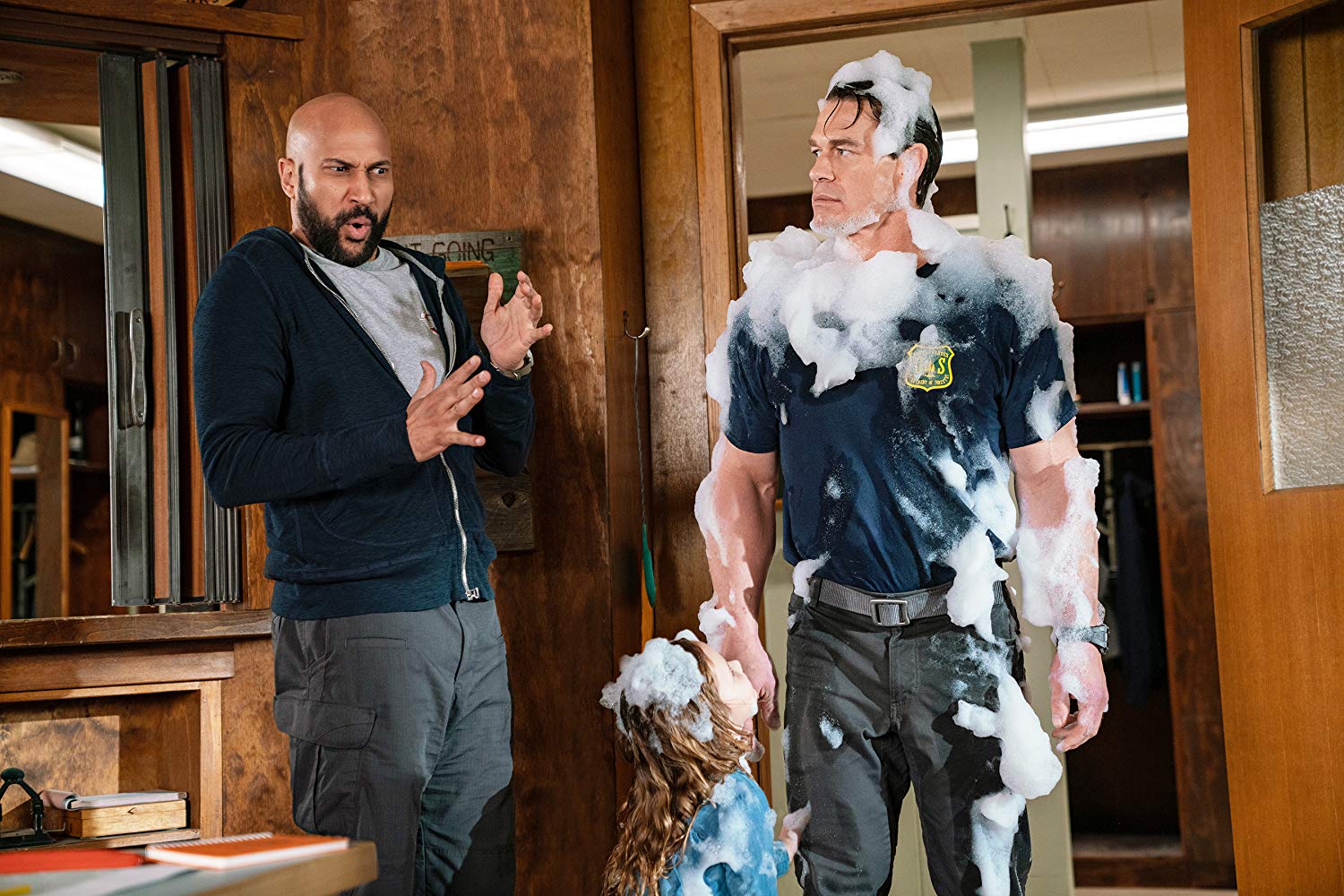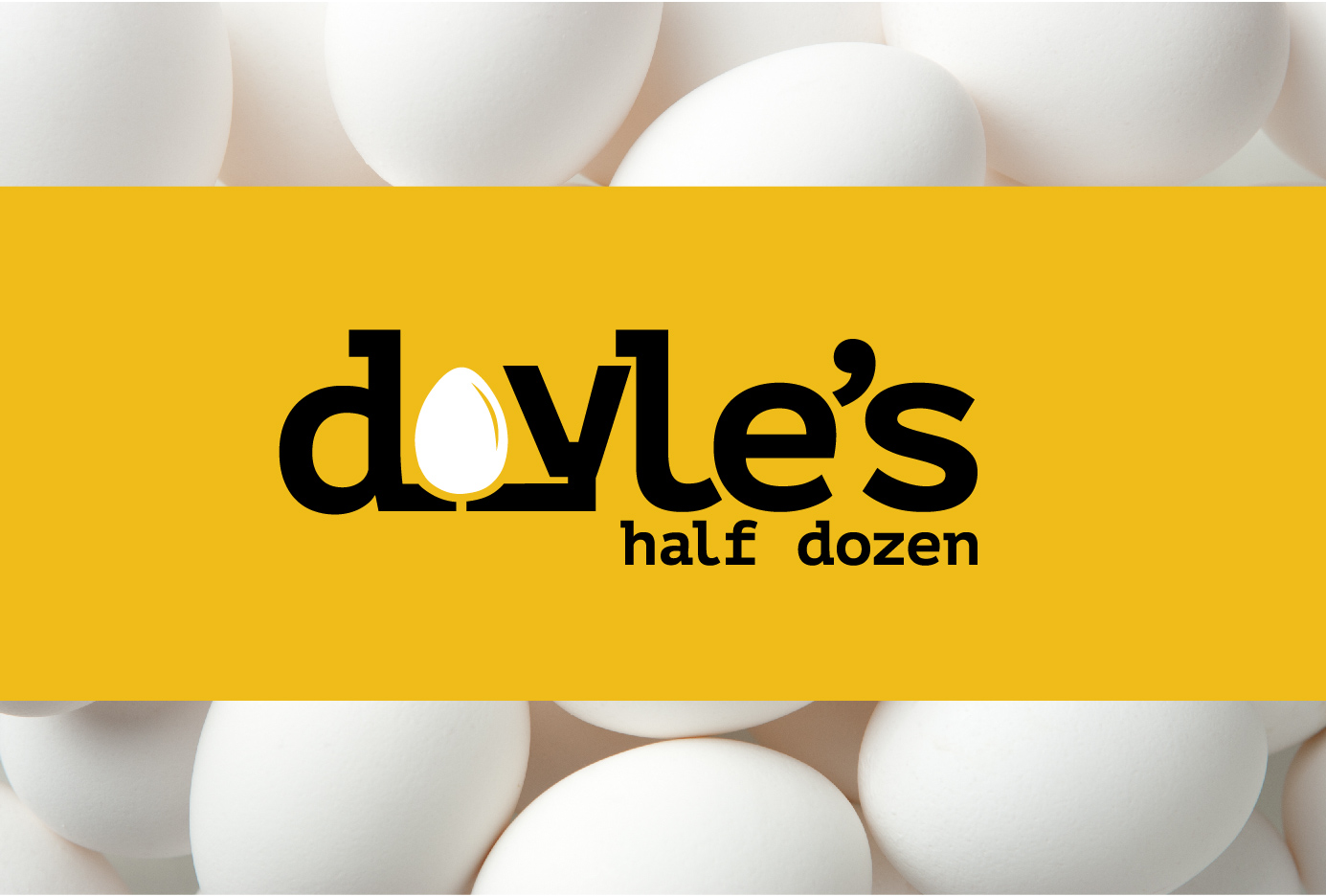
by Michael Foust | Nov 22, 2019
The Disney musical ‘Frozen 2’opens this weekend, continuing the story of a magical queen who has the power to create ice.
Elsa is the young magical queen of a peaceful kingdom,
Arendelle, where no one is lacking and where everyone seemingly is happy.
It’s such a perfect kingdom, in fact, that few people care
to venture far outside its borders.
Elsa, though, is no ordinary person. She can create an ice
palace with a simple twist of her hands. She can start a snowstorm with a snap
of a finger. She can repel an army while sitting down. She has powers that her
sister, Anna, never had.
Not surprisingly, Elsa begins to wonder: Why was she born
with these powers?
Then she remembers a story her father told about an
enchanted forest to the north protected by the spirits of air, fire, water and
earth. Unfortunately, though, a mysterious mist now covers that forest,
preventing anyone from getting in—or out.
But now Elsa is hearing a siren’s voice from the forest. It
calls to her during the evening. It wakes her up at night. Perhaps—just perhaps—this voice holds a clue to
her past. Then again, maybe that voice is setting a trap to harm her.
The Disney musical Frozen
2 (PG) opens this weekend, starring Idina Menzel (Ralph Breaks the Internet) as Elsa, Kristen Bell (The Good Place) as Anna, Josh Gad (Beauty and the Beast, 2017) as Olaf the
snowman, and Jonathan Groff (The
Conspirator) as Kristoff. All four voices were in 2013’s Frozen.
In Frozen 2, Elsa
tries communicating with the siren but accidentally wakes the forest’s spirits—sparking
a series of natural disasters in Arendelle that force the citizens to evacuate.
Elsa then joins Anna, Kristoff and Olaf in a journey to the forest in hopes of
reversing the damage to Arendelle—and perhaps finding answers for Elsa.
Frozen 2 includes the same type of magic in
the first film—a topic that divided Christian families in 2013—and introduces
animism, too. (Details below.)
In addition, Frozen 2
simply doesn’t have the, well, magic
of the first film. The plot isn’t as fun and simple. The music is good, but not
as memorable.
Even so, it does have plenty of laughs and emotion-laden
moments—just like its predecessor.
Warning:
minor/moderate spoilers!
(Scale key:
none, minimal, moderate, extreme)
Violence/Disturbing
Minimal. We see a flashback to a battle with swords. (It’s
bloodless.) Characters run away from a fire (it’s really a “fire spirit”) in
the forest. “Earth Giants”—rock-like monsters bigger than hills—roam through
the woods at night. Later, during the daytime, Anna and Olaf canoe down a river
past the Earth Giants. Elsa and Anna get separated. It’s learned that one of
their relatives killed someone.
Sexuality/Sensuality/Nudity
Minimal. The Kristoff-Anna romance includes a couple of
short kisses on the lips. Olaf jokes that he finds clothes “restricting.”
Coarse
Language
None. (Although we do hear a “butts” and an unfinished “what
the ….”)
Other
Positive Elements
The sibling love between Elsa and Anna can be a model for
movie-going brothers and sisters.
Other Stuff
You Might Want To Know
We see a flashback to Elsa making ice sculptures as a young
girl. Trolls come out of the forest; they say of Elsa’s powers: “We must pray
they are enough” to save the kingdom.
Life Lessons
Life is all
about change: But
as Anna and Olaf learn, some things are priceless and even permanent.
Everyone
needs encouraged: Elsa
has constant doubts, but Anna encourages her: “When will you start seeing
yourself like I see you?”
Self-sacrifice
is a virtue: Both
Elsa and Anna put their lives on the line for the betterment of each other and
the kingdom.
Wrongs need
to be righted: It’s
at the heart of the plot. Still, we must ask: Is there a statute of limitations
on such a belief?
Worldview/Application
Frozen 2 will divide Christian families.
Some will see it as innocent fun that even can be used to educate children
about unbiblical worldviews. Others will point to the film’s animism and plot
and choose to sit this one out.
More than likely, families who enjoyed Frozen, Moana and Coco will
enjoy Frozen 2.
For parents who want to explore the worldview, here’s what
you need to know about the movie’s animism: We meet a heroic people of the
forest who “only trust” nature. We hear that water is a living organism that
has a “memory.” We learn that the spirits of air, fire, water and earth are the
“most powerful” spirits on the planet. We also learn of a “fifth” spirit that
is a bridge between people “and the magic of nature.” Additionally, Elsa
mentions how she’s seen her “power grow.”
The movie, like its predecessor, gives us a good example of
sibling love. It also introduces a major ethical question: Does every “wrong”
need to be “righted”?
Sponsors
Ziploc, Google Home, JC Penney, Nature’s Own, Kellogg’s,
General Mills, Enterprise, Juicy Juice, McDonald’s, Icebreakers and Glade.
Discussion
Questions
1. What can Frozen 2
teach us about the relationship between siblings?
2. If you could explore deep into your past and uncover
family secrets, would you?
3. Should every “wrong” in history be “righted”? Are there
limits?
4. Name three positive character traits of Elsa—and then of
Anna.
Entertainment rating: 3 out of 5
stars. Family-friendly rating: 4 out
of 5 stars.
Frozen 2 is rated PG for action/peril and some thematic elements.
Photo credit: Disney

by Michael Foust | Nov 22, 2019
‘Playing with Fire’is a slapstick comedy that most children (and even parents) will love.
Jake Carson is a straight-laced superintendent of a group of
smokejumpers—elite firefighters who parachute into wildfires to rescue the
stranded and save houses from destruction.
He’s never met a joke he thought was funny. He’s also never
met a child he thought was cute.
For the single Carson, the meaning of life is smokejumping
and climbing the career ladder. Dating is a waste of time. So are
children.
But then Carson and his crew rescue three kids from a cabin
in the middle of the forest.
Their parents are away for the night, which means they’ll
have to eat dinner and sleep back at the fire station.
Carson quickly sets the ground rules: “This depot is not a
playground.”
Unfortunately for Carson, these kids aren’t the
sit-down-and-be-quiet type. One is an energetic little girl. The other is a
curious get-into-everything boy. And the third is a wise-cracking
teenager.
Can Carson survive the night? Or will these three children
teach him how to laugh—and perhaps even how to love?
Now in theaters, the children’s comedy Playing with Fire (PG) stars pro wrestler John Cena (Ferdinand) as Carson; Keegan-Michael Key (The Lion King, 2019) as Mark, a smokejumper; John Leguizamo (Ice Age series) as Rodrigo, another smokejumper; and Judy Greer (Ant-Man) as Carson’s romantic interest, Amy Hicks.
Playing with
Fire is
a slapstick comedy film in the same genre as Home Alone and Peter Rabbit—but
with far less violence. And unlike Home
Alone, it contains no coarse language. Most kids will love it.
Thankfully, it’s also a movie that outperforms its trailer.
It contains plenty of laughs for mom and dad. Even better, it has a
family-centric plot—and a great foster care angle.
Key and Rodrigo are the funniest, but Cena provides a few
chuckles, too.
Along the way, moviegoers learn about smokejumpers. (Such
as: Did you know there are only about 330 of them in the U.S.?)
Warning:
minor/moderate spoilers!
(Scale key:
none, minimal, moderate, extreme)
Violence/Disturbing
Minimal. Children are trapped in a cabin that’s on fire.
(They’re quickly rescued.) A laughing toddler grabs a nail gun and starts
shooting it at a man. (It’s played for laughs.) An automobile, driven by a teen
girl, nearly falls off the side of a cliff. (She and the passengers are
rescued.)
Sexuality/Sensuality/Nudity
Minimal. A married woman jokes about Carson being
attractive. (“My husband sells insurance,” she says. “Take me with you.”) The
muscular Carson (Cena) is seen two or three times without his shirt. (He
quickly puts a shirt on each time.) A man is called a “stud.” The children
arrange for Carson and Hicks to have a date. (The movie ends with a kiss and
them marrying.)
Coarse
Language
None.
Other
Positive Elements
Even though the film is a comedy, we see the heroics of
smokejumpers on display.
Other Stuff
You Might Want To Know
We see a bottle of alcohol. A few of the men drink the
alcohol in small kiddie cups. (It becomes a running joke.) But they don’t
become drunk. We learn that some of the characters (including Carson) lost
their parents at a young age. We see a wine bottle emoji.
Life Lessons
Work isn’t
the meaning of life: At one point, Carson asks, rhetorically, “Without this job,
who am I?” Eventually, he learns that friends and family are more important.
The world
needs first responders: As long as we’re building civilizations near forests, we
need heroes like Carson and his men.
Children are
a blessing: It
takes a while, but Cena finally discovers this.
Worldview/Application
Playing with
Fire
was produced in partnership with Nickelodeon Movies—a company known more for
goofiness than emotional-laden stories.
This film, though, hits the bullseye on a few key messages.
Like the priority of family. And the blessings of childrearing. And the
importance of a mom and a dad.
It’s not a classic like Home
Alone, but thanks to a family-friendly script—it’s clean enough for all of
my young children—it may be worth a trip to the theater.
Final
Verdict
Most critics are panning this film, but I suspect they
didn’t watch it with a kid. Maybe they’re just like Carson—and need to loosen
up.
The humor is truly funny, and its stays in appropriate
territory. I enjoyed it.
Discussion
Questions
1. Do you know of any first responders who deserve your
prayer and thanks?
2. What is the film’s message about children? About foster
care?
3. Did Carson have the wrong view of life and work? Why or
why not?
4. What caused Carson to change his mind about the children?
Entertainment rating: 4 out of 5
stars. Family-friendly rating: 4.5
out of 5 stars.
Playing With
Fire is rated PG for rude humor, some suggestive material and mild peril.

by Brian Hobbs | Nov 21, 2019
As a social conservative who frequently dines at
Chick-Fil-A, the news that the beloved fast-food restaurant has changed its charitable
giving strategy away from traditional Christian groups hit me hard. In fact,
the news, to borrow a phrase, was not my pleasure.
From Eric Erickson to Russell Moore to others, there is
no shortage of interesting “hot takes” on this hot button issue you can find. While
personally saddened upon hearing the news, I began to observe some eerily familiar
online arguments in this latest “food fight.”
In fact, I have observed a pattern of personalities on
social media that seem to rise up during any given controversy. Who am I
talking about?
The Agitators
These are the people who enjoy stirring up strife. In our
social media age that rewards spats and disagreements, these folks are truly at
home. If they are not verbally sparring with someone online, their day is not
complete. For Christians, this should not be our posture.
The Perpetually
Outraged
These are people who seem to fight a new outrage every
week. This week, it’s Chick-Fil-A. Last week, it was another issue. Next week,
it will be another. While we can and should be outraged at injustice and
compromise in the world, Christians must learn how to avoid being sucked into what’s
been called the “perpetual outrage machine.”
The Commenters
These folks have something to say about everything. Whether
it’s about war in Syria, profession sports, laws debated in Congress, new TV
programs or just someone’s personal news, these people seem to provide “expert”
comments on everything. While Christians can and should be informed on a wide
array of topics, it does not mean we need to comment on everything.
The
Conciliators
“Can’t we all just get along?” is a familiar refrain.
These people perceive the growing strife and try to heal divides. While their
peacemaking efforts are noble, far too often these folks get steamrolled in any
conversation, especially online. While we need more people trying to bring
peace, Christians also can heed the proverb that warns us from grabbing a dog
by the ears (Prov. 26:17) and inserting ourselves into every strife that comes
along.
The Disheartened
All of the back-and-forth wears people out. It seems
hardly anyone is persuading anyone any more. This lack of civil discourse leads
to people giving up, to becoming disheartened. Many of these folks have either
faded away from social media conversations, or quit social media altogether.
At various times, I myself have fallen into each of these
categories, whether talking about important news like Chick-Fil-A or other
topics. A personality type I am aiming toward becoming is an Ambassador for
Christ. That is to say, someone who represents Him well. To that end, all Christians
ought to conduct ourselves in a manner worthy of our calling; in a way that honors
Him and sets us apart in a culture gone crazy with verbal “food fights.”
“Let your conversation be always full
of grace, seasoned with salt, so that you may know how to answer everyone” (Col. 4:6).

by Angela Sanders | Nov 18, 2019
Sometimes life feels like a bad dream, the plot absurd, each
step an agony.
Like whispers of the wakeful, bright thoughts and spurts of
energy flow near and through you once in a while, but dissipate quickly. When they pass, you struggle to take hold,
desperate to pull yourself from the slog.
Then you remember.
Heavy and
heartless, reality weighs you down again like a lead apron, suffocating
any present hope of happiness. Head full
of cotton, heartbeat an ache, you feel the sting of pain and look down to find
your fingers, grasping nothing, have squeezed in on themselves, biting flesh.
I’ve been there.
Several times.
In seasons like these, it’s hard to believe circumstances
will ever change, that you will ever again experience the peace and joy you
once knew, that you could ever again be the person you once were.
Enter Jesus.
Don’t cringe. I’m not
going to tell you He will fix everything and take the pain away. He may not.
I just want you to know that He’s there (Prov. 18:24, Rev.
3:20, Matt. 28:20).
And He gets you (Heb. 4:15).
Yes, God sent Jesus to earth to live a sinless life and die
a slow, torturous death in your place so you could experience eternal life
through Him (2 Cor. 5:21, Rom. 6:23), but that’s not all the Father required.
Get this: God
required Jesus to be human for a while—fully God at the same time, yes (John
1:1)—but human! Can you imagine? Glory for grunge…33 years of it!
Now, Jesus may not have had the exact thoughts and/or
experienced the same doubts you and I have—He did have the benefit of deity,
after all—but He did experience all the gross stuff that comes with being one
of us—fatigue, hunger, loss, anger, sadness, disappointment, rejection, persecution,
isolation, and pain, etc.—in a very real, sometimes intense, way.
Why?
So He could be there for you, not just rescue you and be
gone, but walk with you in, through, and beyond the muck of being human (Heb.
2:10).
The Enemy wants you to believe you are completely alone,
that no one understands you, that God has abandoned you, that you are not
loved, but nothing could be farther from the truth.
Before you ever even knew you needed a friend and Savior,
God saw you, loved you, and was preparing a friend and Savior for you. Just as He sustained Jesus against a skilled,
hateful, relentless Enemy in the wilderness when He was sapped of all strength
and ability to reason on His own (Luke 4), God will sustain you, arming you against
the temptation to despair and choose your own path by the power of His Holy
Spirit.
Now, I’m not going to lie.
Your circumstances may not change, you probably won’t ever
experience the kind of peace and joy you once knew, and you definitely won’t
ever be the person you were again.
But if you admit your need for a Savior—even in your present
circumstances—and accept His rescue through faith, God will give you victory
through the struggle and make your obedience count for the Kingdom (Eph. 1:11). Your peace and joy will deepen as your
intimate knowledge of God’s power and faithfulness increases, and God will
continue to transform you into something better than you were, the very image
of His son, your friend and Savior Jesus, until He calls you home, where you
will be made perfect (2 Cor. 3:18, Phil. 1:6).
The wait feels like forever when you’re hurting, I know, but
this life is just a breath (Jas. 4:14).
Hang in there. Keep
trusting. Keep obeying, even when the
Enemy whispers, your mind plays tricks, and your emotions refuse to fall in
line with what you’ve chosen to believe by faith.
Soon—when God says it is time because life is His alone to
give and take as Creator—you will stand, fully awake (1 Cor. 13:12), in the
very real and lasting brilliance of His glory, bad dream over, this present
pain a distant memory (Rev. 21: 4, 23).

by Chris Doyle | Nov 15, 2019
Greetings!
I have gone back and forth on what this week’s DHD should
discuss.
There’s a lot of current issues of which I could give
commentary. I’ve also read some great articles, thought-provoking pieces that I
would love to share.
Lastly, I participated in an impactful two-day event earlier this week—the Annual Meeting of Oklahoma Baptists, which included an excellent pastor’s conference and a moving, crowd-drawing Sending Celebration of international missionaries—and I could give a great report on all that occurred.
Instead of delving into all of this blog fodder, I decided to break down a powerful interview that Jacksonville Jaguars quarterback Nick Foles gave.
Even while penalties and punishments are being reported from the Miles Garrett incident, I will shed some positive light, even the Gospel light, through another NFL player who is about to return to the gridiron this Sunday after suffering a collarbone injury during the first week of the season.
Check out what Nick Foles said after a reporter asked him about his Christian faith:
1. ‘I’m going to
glorify You in every action, good or bad.’
Nick shares his version of “If we win we praise Him, and if
we lose we praise Him,” the phrase that was made famous in the movie Facing the Giants.
2. ‘I can still have
joy in injury’
This is a key comment because Nick knew it would not be easy
for people to understand. He even followed up with admitting that it sounds
crazy, but the only people who can get what he means are those who have Jesus
in their lives.
3. ‘I didn’t need
that trophy to define who I was’
This is another puzzling statement. He talked about winning
the Super Bowl when he played for the Philadelphia Eagles. This is the ultimate
moment of success for any professional football player, and Nick downplays it.
He even gives a plea to that player who doesn’t have Jesus in his life who is
pursuing similar success and can’t find contentment when he lays down at night.
4. ‘My purpose isn’t football; it’s impacting people’
Many believe that sharing the Gospel is for people in
full-time ministry. With this comment, Nick squelches that concept. All
Christians are giving the charge to share the Gospel throughout the world,
regardless of our occupation. I was encouraged to hear Nick say that the locker
room is his ministry, even while he was injured.
5. ‘I don’t believe in the prosperity gospel’
Whoa Nick! Now he’s stepping on some toes here! And I love it. Nick shared more truth about the Bible in this small segment than what many televangelists preach. The Bible does speak about trials that help you grow in your faith (James 1:2-3).
6. Going against
Frank Reich
I’m glad Nick mentioned Frank Reich, the head coach of the
Indianapolis Colts. Frank also has a great testimony, and Sarah Eekhoff Zylstra
shared his story how he once was a seminary
president before becoming an NFL head coach.
Take heart, my friends! God is still moving today, even in
the NFL.

by Michael Foust | Nov 15, 2019
The film ‘A Beautiful Day in the Neighborhood’ opens next week, telling the story of a journalist whose life is changed after meeting Mister Rogers.
Lloyd Vogel is a tenacious reporter for Esquire who always
tackles the big stories—and if there’s dirt to be found, he uncovers it.
He writes about the crooked politicians and the lying
businessmen. He finds out what people are really
like when they’re not in the public eye.
In other words, he writes about “hard” news. And puff
pieces? Those are for other reporters.
But then Vogel is given the task of writing a feature on
Fred Rogers—the kid-friendly television host who, seemingly, is always kind.
Vogel is determined to uncover the real Mister Rogers.
“I’m supposed to go easy on this guy because he plays with
puppets?” he rhetorically asks his editor.
Surely—Vogel thinks—Mister Rogers isn’t always kind.
“Please,” his wife begs, “don’t ruin my childhood.”
The film A Beautiful
Day in the Neighborhood (PG) opens next week, starring Tom Hanks (Toy Story series, Bridge of Spies) as Rogers, Matthew Rhys (The Post) as Vogel, and Susan Kelechi Watson (This Is Us) as Vogel’s wife, Andrea.
The movie is based on a true story about Esquire journalist Tom Junod, who was
assigned a story on Rogers that eventually landed on the cover of the magazine.
In A Beautiful Day in
the Neighborhood, Vogel is estranged from his father and battling feelings
of rejection, hatred and unforgiveness when he interviews Rogers. Soon, though,
it is Rogers who is asking Vogel the questions—and it is the hard-hitting
journalist who is learning about kindness and forgiveness, and being changed
for the better.
It’s among the most uplifting and moving films in recent
years and one of the best ones, too. Tom Hanks delivers an Oscar-worthy
performance. Rhys and Watson are impressive. The film masterfully recreates the
look and feel of Mister Rogers
Neighborhood.
A Beautiful
Day in the Neighborhood isn’t a faith-based film in the vein of Overcomer or I Can Only Imagine, even though it makes clear that Fred Rogers was
driven by his Christian faith. We see him kneeling beside his bed and praying
for specific people, by name. (He was an ordained minister who viewed his TV
show as a ministry.) His wife says he “reads Scripture.” Of course, we also see
him exhibiting the fruit of the Spirit, on andoff camera.
Warning:
minor/moderate spoilers!
(Scale key:
none, minimal, moderate, extreme)
Violence/Disturbing
Minimum. We see a fight at a wedding. We watch someone have
a heart attack and later die.
Sexuality/Sensuality/Nudity
Minimum. We hear a discussion about someone “sleeping
around.” A couple shares one or two brief kisses. A character exhibits
cleavage.
Coarse
Language
Minimum. H– (4), OMG (2) and d–n (1). (None of the coarse language is spoken by Mister Rogers.)
Other Stuff
You Might Want To Know
Two characters share a drink of alcohol. (Neither is Mister
Rogers.)
Life Lessons
Kindness can
change the world: Mister
Rogers occasionally was mocked, but as the movie demonstrates, his lessons on
kindness and compassion resonated with multiple generations of people of every
race.
Forgiveness
shouldn’t wait: Sickness
and death have a way of forcing people to forgive and reconcile. God, though,
doesn’t want us to wait.
Fatherhood
is priceless: Lloyd
wants to be a better father to his child than his father was to him.
Life is a
vapor: Lloyd’s
father discovers what’s most important in life—but doesn’t do so until he’s at
the tail end of his life. It’s “not fair,” he says.
Worldview/Application
A Beautiful
Day in the Neighborhood is the rare mainstream movie that promotes dozens of
positive messages: kindness, compassion, forgiveness, reconciliation and the
importance of family, among them.
All of these, though, are grounded in Scripture. Mister
Rogers was an ordained Presbyterian minister who viewed his television show as
his ministry. Yet he also treated individual people in his life as if the
camera was still rolling.
He had a child-like wonder about the world that all of us
should learn. Further, he was void of scandals in a world that was increasingly
scandal-plagued.
In other words, he was the same person in private that he was
in public. He wasn’t perfect—as his wife says in the movie—but he exhibited
Christ’s love for others in a unique and rare way.
In the war-torn, defiant world of the 1960s and 70s, he was
a breath of fresh air. Today’s society could learn a lot from Mister Rogers.
Discussion
Questions
1. Why do you think Mister Rogers’ TV show was so popular?
2. What lessons can we learn from Mister Rogers’ life?
3. Do you think kindness, compassion and love can change the
world? Explain your answer.
4. Why is forgiveness so hard? Is there anyone you need to
forgive?
5. What lessons can we learn about life from Lloyd’s
father?
Entertainment rating: 5 out of 5
stars. Family-friendly rating: 4 out
of 5 stars.
Rated PG for
some strong thematic material, a brief fight, and some mild language.

by Caleb Moore | Nov 14, 2019
A few days ago a young mother came to get some food and
clothes that our church offers to people in need. She was in her mid 30s and
was wearing a gay pride t-shirt. As I visited with her, she began to tell me
about the difficult path her life is on at the moment.
After being injured from work and let go, she struggled to
make ends meet, and her wife was diagnosed with bone cancer. They were doing
all they could just to keep her alive and healthy as long as possible, but it was
getting worse.
For those of us who are comfortable, it can be difficult to
imagine what it would be like to struggle so hard in life.
After our visit I invited her and her wife to our church.
She smiled and told me that I seemed like a nice person, but she wouldn’t feel
very comfortable due to their last visit to a church that went south really
quickly. She explained how the last church they had visited told her kids that
unless their parents get a divorce they would all go to hell. As someone who
has been damaged by the church, stories such as these just tear my heart apart.
After some more discussion, I promised her that at our
church she would feel loved and supported as her wife battled cancer. Sure, we
may have a different moral foundation when it comes to sexuality, but this
wasn’t the time or the place to focus on that issue.
Most LGBTQ people know what Christians believe on this
subject, but what they don’t know is how much God loves them. They don’t know
this because all we communicate is justice and not compassion.
In the churches pursuit of holiness, we have spent a lot of
time talking about what is sinful. We have worked hard to cleanse ourselves of
all unrighteousness, but have we done so in the wrong way?
If your pursuit of holiness makes you look down your nose at
those who are lost then you didn’t pursue holiness at all. You pursued
pride. Don’t forget that you were once
like everyone else, and it was Gods grace alone that set you free.
This conversation made me think of the story of
Zaccheaus. He was hated by Jews and
Romans—a social outcast of the highest degree. Jesus saw this outcast and told
him, “Hurry, I must have dinner at your house.”
Instead of being disgusted by his sins, like all the other
religious people, Jesus saw someone who was begging to be set free. The love of
Jesus was so strong that Zaccheaus repented and was saved. Jesus showed him
grace, and the Spirit did the convicting.
This may be difficult for some of you because you have spent very little time
with anyone from the LGBTQ community. You may have the urge to bring up the
obvious issues as soon as possible, maybe even the first day they show up.
If you are wondering when you should show grace and when you
should speak truth just ask yourselves how long would you need to know someone
before they started asking personal questions about your sex life?
The relationship comes first and then the theology. We have inherited
a ministry of kindness and should copy what Jesus did.
We should run to the LGBTQ community and invite them over
for dinner—not because we approve of their morality but because they are people
to be loved just like anyone else.
If you are truly seeking holiness then being a morality snob
is not part of the formula. Lost people will always act like lost people. They
have no other choice. So open the doors of your church a little wider, know
people a little better, love a little more and watch what the Holy Spirit does
to the spiritual vagabonds who wander in.

by Chris Doyle | Nov 8, 2019
Greetings!
Thank you for reading this week’s edition of Doyle’s Half Dozen. Here’s six timely topics for you to consider.
1. Berlin Wall’s been down 30 years
I was in my junior year of college when the Berlin Wall came crumbling down. It felt like being in a vacuum while I was in college. I did not have as much access to news during those years, but it seemed odd at the time that West Germany and East Germany would reunite after 40 years being separated.
Now, it’s been 30 years since the
Wall came down, and the oddity seems to be in reverse. We can’t imagine Germany
being divided.
The International Mission Board
offers a great excerpt from an article written in 1990, giving the perspective
of mission work being done in Berlin soon after the teardown of the Wall.
I hope you will check out “The Berlin
Wall, Thirty Years Later.”
2. Stetzer on Crist
John Crist has been on the rise as
a Christian comedian. If you don’t recognize his name, it’s likely you have
seen one or few of his videos shared on social media.
News broke this week that Crist
has been accused of sexual misconduct and is cancelling his current concert
tour, as well as future performances.
Ed Stetzer comes through once again to give proper perspective. He always communicates objectively when sharing his views when controversy occurs among Christians and specifically among Southern Baptists. His article “John Crist, Failure and Warnings to Heed for Christian Leaders” is an excellent read.
3. Trump impeachment status
I’ve steered clear of the mess
involving President Trump and his well-known communications with Ukraine and
how it has turned into a major mess in Congress.
One of the better articles I have
read about the current impeachment inquiry is from Andrew McCarthy, “Trump
Impeachment Inquiry is Unpredictable.”
McCarthy, David French and Albert Mohler are three people whom I find to be the most accurate in analyzing this impeachment process. All three are not strong Trump supporters, but they each have concluded that the President handled the Ukraine episode poorly but not in a fashion deserving impeachment.
A friend on Facebook shared a
great comment from French who was ironically referencing McCarthy when
commenting:
“It
was inappropriate for the president to point the Ukrainians specifically and
explicitly at the Bidens. A more polished president would simply have said, ‘We
want you to root out corruption, no matter how high up it goes, even in our own
government’—the Ukrainians would have gotten the point and there would be
nothing to criticize. Trump went about it crudely. Commendable? Of course not.
A valid reason to vote against him in 2020? Surely. But it’s not impeachable.”
4. Thunder remembers
I
worked the Oklahoma City Thunder-Orlando Magic game on Tuesday, Nov. 5, and the
pregame was more resonating than the actual game (Thunder won, though, so that’s
a great thing).
Before tip-off, the Thunder recognized the family members of the 168 people who died in the bombing of the Murrah Building in 1995. Each family member received a jersey in the likeness of the ones that will be worn later this year. The jerseys commemorate the Bombing Memorial.
Here’s a video of the experience, which I think is an awesome flick.
5. Midway movie and Veterans’ Day
Veterans’ Day is next Monday, Nov.
11. Many will observe this day, as well as during this weekend, as an
opportunity to show appreciation for those who served in the military and
especially those who sacrificed their lives during their military service.
One way you could prepare yourself
for Veterans’ Day is to go see the new release Midway, which debuts in theaters this weekend. Check out Michael
Foust’s review of the film here.
6. Come to Annual Meeting!
Finally, here’s my last appeal to
you to come to next week’s Annual Meeting of Oklahoma Baptists. It will be at
Quail Springs Baptist Church in Oklahoma City, Nov. 11-12. There is so much
involved during these two days, and I hope you can participate in all of it.
Two specific meetings I would
encourage you to attend are the opening session of the Annual Meeting at 6:30
p.m. on Monday, Nov. 11, and the IMB Sending Celebration at 6:30 p.m. on
Tuesday, Nov. 12. Both of these events will be monumental, as the opening
session will be a time Oklahoma Baptist leaders present a new charge and focus
of how we intend to operate and serve collectively as Oklahoma Baptists across
the state.
The IMB Sending Celebration also
is a “can’t miss” experience, as it will be a demonstration of what we do as
Southern Baptists of both “sending and going” in the sharing of the Gospel
throughout the world.
You can find out more about the
Annual Meeting here.

by Michael Foust | Nov 8, 2019
The movie ‘Midway’ (PG-13) opens in theaters this weekend, telling the true story of a pivotal World War II battle that took place merely six months after Pearl Harbor.
Dick Best is a cocky Navy bomber pilot from New Jersey who
has never met a challenge in the air he didn’t face with bravado.
As one of his superiors says, Best “doesn’t care” that he
might die during training or battle—nor
that his recklessness might jeopardize others.
But Dick Best’s gusto just might come in handy if the United
States is to win the Pacific against Japan.
The year is 1942, and the American military is still
recovering from Japan’s attack on Pearl Harbor that killed more than 2,400 and
destroyed 18 ships.
The U.S. is planning a major counterattack, and Best and his
squadron could play a key role. The goal: lure the Japanese Navy to an area 1,000
miles northwest of Hawaii—known as the Midway Atoll—for an ambush.
There, the U.S. can deliver a crippling blow to Japan’s
heretofore superiority in the Pacific and, hopefully, turn the tide. Otherwise,
the Japanese will win and use Midway Atoll as a base to eye North America.
“If we lose, then they own the Pacific,” Best tells his
wife. “Then they raid the whole West Coast.”
The movie Midway
(PG-13) opens in theaters this weekend, telling the true story of a pivotal
World War II battle that took place merely six months after Pearl Harbor and
virtually assured Japan would not advance to California.
The Japanese lost four carriers to America’s one at Midway
and twice as many aircraft, too—and operated from a defensive position the
remainder of the war.
Midway stars Ed Skrein (Alita: Battle Angel) as Best, Woody Harrelson
(The Hunger Games series) as Chester
W. Nimitz, and Dennis Quaid (I Can Only
Imagine) as William ‘Bull’ Halsey.
Despite the name, the movie’s plot involves more than just
the famous battle. The film opens in 1937 and then jumps ahead to the morning of
Dec. 7, 1941, the day Pearl Harbor was attacked. We then follow Best and his
friends as they mourn their friends’ deaths and prepare for a series of
counterattacks—including another important battle, Coral Sea—leading up to
Midway.
Thanks to spectacular special effects and characters based
on real people, Midway is
ultra-realistic. By the time the credits roll, you just might want to stand up
and cheer for the men and women who were dubbed the “Greatest Generation”—the
generation that won a war on multiple continents thanks to courage, hard work
and self-sacrifice.
Still, Midway is
far from being a family-friendly flick, and is marred with excessive language that
might cause many moviegoers to stay away.
Warning:
minor/moderate spoilers!
(Scale key:
none, minimal, moderate, extreme)
Violence/Disturbing
Moderate/extreme. Midway has multiple battle scenes—of ships
sinking, planes exploding and men dying—but it lacks the blood and gore found
in many other war movies. Even so, it might trouble those who have served in
the military. We see lifeless bodies—a few of them charred—after the attack on
Pearl Harbor. We see a room full of body parts that are covered with blankets.
A Japanese pilot performs a kamikaze mission as his plane was hit. Japanese
planes fire at a field of farmers. The film likely has dozens, if not a few
hundred, explosions.
Sexuality/Sensuality/Nudity
Minimal. A man makes a joke about “chasing tail.” Men and
women dance at a club. We see one or two pinups (in the background) of scantily
dressed women.
Coarse
Language
Extreme. H-ll (24), d–n (10), GD (7), b—-rd (6), a– (6),
s–t (6), SOB (4), misuse of “Christ” (2), misuse of “Jesus” (2), f-word (1).
We also hear two or three ethnic slurs about Japanese people.
Other
Positive Elements
Dick Best is married and has a young daughter. Despite his
bravado, he is a loving father and husband who cares for his family. (One scene
shows him kissing her goodnight.)
An intelligence officer references his workload when he says
of his wife, “When the war is over, I plan on spending the rest of my life
making it up to her.”
Other Stuff
You Might Want To Know
Smoking is prominent. We see men and women drinking alcohol.
A man says, “I don’t believe in God.” (Although, later in the film, we hear
someone say, “God bless those boys.”) Midway, unfortunately, includes few
faith-centric elements.
Life Lessons
Family is
essential: Best,
despite his brashness, misses his wife and daughter. At one point, he tells a
friend he wants to survive the war so he can watch her grow up.
War isn’t
glamorous: Too
often, we romanticize war. But as Midway
shows, war should be avoided at all costs. People die. Children grow up without
a parent—and husbands and wives without a spouse.
Courage is a
virtue:
Wars couldn’t be won without soldiers who are willing to die. At the Battle of
Midway, there were thousands of brave men who were ready to put their lives on
the line.
Worldview/Application
War is horrible. Before the Fall, it didn’t exist.
Sometimes, though, war is necessary. Indeed, World War II is
often seen as the best modern example of a just war. Hitler killed 6 million
Jews. The Japanese killed between 15 and 20 million Chinese civilians. How far
would these two regimes have gone if they weren’t stopped?
In the middle of this, the U.S. was attacked.
Tom Brokaw called this group of men and women the “Greatest
Generation.” They defended freedom. They fought the embodiment of evil.
And they did it with traits grounded in Scripture: courage,
self-sacrifice, selflessness and perseverance.
Midway largely avoids the topic of faith.
But it rightly characterizes these men and women as regular people who put
their lives on the line to save a world in peril.
What Works
The story. The special effects.
What Doesn’t
The film has too much language—and not enough faith.
Discussion
Questions
1. What made the Greatest Generation so great?
2. Is war ever necessary? Explain your answer.
3. What are the limits to a just war?
4. How would the world be different today if the U.S. had
remained neutral?
5. List five positive character traits of the Americans in Midway.
Entertainment rating: 3.5 out of 5
stars. Family-friendly rating: 2 out
of 5 stars.
Rated PG-13 for sequences of war violence and related images, language and smoking.
Photo credit: Lionsgate

by Ryan Smith | Nov 6, 2019
It has been
almost two weeks since rap artist Kanye West dropped his much-anticipated
album, “Jesus Is King.” The angst surrounding this release was virtually
unprecedented. Kanye is one of rap’s premier figures. As evidenced by his eight
previous number-one albums, the appetite for his music is rabid. West is also a
global figure in fashion, architecture, business and a variety of other
exploits. When Kanye speaks, for better or worse, people listen.
“Jesus Is King,”
however, was not reported to be simply another Kanye West album. The newly
professing Christian told fans that this was his first gospel album. A
Christian Kanye album sounded something like a new Little Debbie tuna-flavored
snack cake. Those things don’t go together.
However, despite
the anxiety in both Christian and rap communities, West remained undeterred.
Not only did his lifestyle take a 180-degree turn, his Sunday Services were
drawing thousands not only to hear music, but theologically-rich gospel music.
Not only were people hearing a sermon, but a doctrinally-sound call to
repentance from sin in light of a holy God.
Kanye was not
just sharing gospel music; he was sharing the Gospel.
But could Kanye West
actually understand and represent Jesus Christ? Would Christianity water-down
West’s edge and creativity?
“Jesus Is King”
is not your normal record. Foregoing traditional intros, outros and song
structures, the album jumps from track to track like interrupted thoughts. In a
way, the album gives us a look into West’s mind and personality. Amazingly, it
also gives us quite a glimpse into the restless soul of a new believer.
The album opens
with the gospel-choir anthem, “Every Hour.” It’s what one might associate with
a large choir on a gospel album. Yet as the organ begins to swirl on the second
track, “Selah,” the listener gets the first words from Kanye himself. What the
listener finds is not only a bold declaration of faith in Jesus Christ set to brooding
orchestration and pounding drums, but lyrics that stream like the first cries
of a new-born. Viscerally-pronounced Scripture references adorn the track as
Kanye exclaims:
John 8:36
To whom the Son set free
Is free indeed
He saved a wretch like me!
The album’s third
track, “Follow God,” openly displays Kanye’s struggles in walking the path of
righteousness with feet that are used to a much different soil. He admittedly struggles
with temper, entitlement and being called out when he is not acting Christ-like.
The frustration and desire are evident.
The next track,
“Closed on Sunday” has been featured on multiple media outlets and is likely
the best (if not the only) song you’ve ever heard on Sabbath rest. For a man
with such a rapid lifestyle, hearing him talk about laying worldly trappings
down and taking up hands to protect his family with prayer and careful doctrine
is not only refreshing, it’s challenging. He writes,
Stand up for my home
Even if I take this walk alone
I bow down to the King upon the throne
My life is His, I’m no longer my own
The album is full
of calloused Christian truisms inbreathed with new life by one now
understanding their significance. Not only are there solid Biblical truths and
moments of amazing discernment on the album, but there are also moments of
immaturity. However, these moments add to the genuineness of “Jesus Is King”
and remind the listener that Kanye is a work in process—as we all are.
Kanye covers an
array of topics at the forefront of any believer’s mind. He addresses purity
(“Water”), stewardship (“On God”), contentment (“Everything We Need”) and his
broken past (“Use This Gospel”).
As he has always
done, on “Jesus Is King” Kanye asks his questions out loud and makes his
statements with brash exclamation points. He is aware that his conversion is an
unlikely story, but as he continually points out, God writes unlikely stories.
Kanye’s past, his success, his future and his concerns are all as he says, “On
God.”
Is “Jesus Is
King” a good album? It depends on your definition of good. Rap critics have
both applauded and panned it. Christian critics have both praised and
disparaged it. Personally, I really enjoy the album. It’s eclectic, full of
catchy hooks, and puts the skills of one of modern music’s most celebrated
artists on display.
Yet none of those
things are what make “Jesus Is King” a good album. What makes this album great
is that it exalts and glorifies Jesus Christ. When I listen to it, I am led to
worship God for His unmerited grace and mercy toward sinners like me. I’m
reminded that the Christian life is hard. I’m reminded that following Jesus
requires conviction, rest, and brilliant shouts of wonder and praise.
Writer Jared
Wilson had the most pointed review of “Jesus Is King” and one we as Christians
should take to heart. He tweeted,
“Kanye’s album sounds like a new Christian
who hasn’t learned yet from the more ‘mature’ that you’re supposed to be more
embarrassed about your faith. It’s not cool. It’s only occasionally clever. But
there’s a purity to it, rough edges and all.”
Whatever one may
say about Kanye after listening to this album, one cannot deny the bold
emphasis of West’s message: Jesus Is King.
It’s easy to be
skeptical of Kanye West. Our shifting society and popcorn culture have left us
jaded and cynical. Kanye is an easy target for our calloused projection. It’s
also easy to get overly excited about the possibilities of having Kanye on the
“Christian Team.” His influence and profile are attractive. But both of these
truths put Kanye in the line of fire. So how should the Christian respond to “Jesus
Is King”?
As Kanye exclaims
in the song “Hands On,”
Yes, I understand your reluctancy
But I have one request you see
Don’t throw me up
Lay your hands on me
Please, pray for me
We should pray
for him. Amen and Amen.








